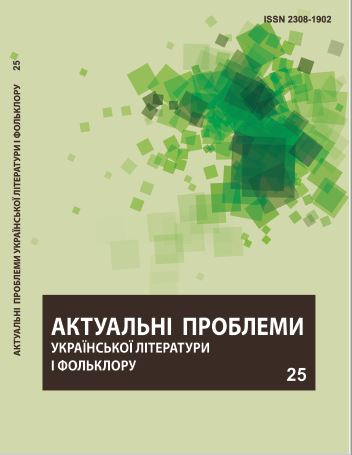Poetics of laughter culture as an aesthetic and artistic mode of environmental modeling (on the example of emigration memoirs).
DOI:
https://doi.org/10.31558/2308-1902.2017.25.7Keywords:
humor, funny culture, genre bricolage, nonfiction prose, author, epigram, satirical-humorous components, discourseAbstract
Comprehensive study of laughing culture on the example of memoirs, sponsored by diaspora writers, is considered in Ukrainian literary studies for the first time. For the sake of clarification, the best examples of nonfiction prose are chosen. It is proved that the specificity of the aesthetic experience of the contradiction of reality is read through the prism of the combination of serious and laughter and is connected with human freedom. To enhance the aesthetic perception of the reader's humor and satire, writers turn to syncretism, multi-vector forms of laughter - humorous, joyous, ironic, plucking (sarcasm), flattering, and patriotic.
It is found out that the poetry of laughing culture as a specific branch, which is analyzed within the structure of a documentary, reveals the type of writer's artistic thinking, an individual style. The means of comic. The memoirists captured nationally marked topos and locuses, historical and everyday stories, life strategies of Ukrainian emigration and the nation, emphasizing the importance of ethnic characters, mentality, legends, legends, backed by a powerful cultural resource. The glamorous culture of documentary and documentary prose expresses national color, mentality, complexity of life's conflicts, vicissitudes of fate.
In memoirs writers resort to the use of multi-vector stylistic tools, farcical means: plucking irony, satirical hyperbolization is a central factor in the peculiarity of the artistic and documentary world. Contribute to the creation of a comic effect of events, phenomena, images and various verbal and artistic functions, which are characterized by the disclosure of negative facts, the creation of a laughing atmosphere, the comic character traits, and the regularities of reality. It is proved that the writers, through a ridiculous paradox, a laughingstock culture, adopt philosophical reminiscences, designed for a profound perception of the negative processes observed in the Ukrainian emigration environment. In our opinion, the identified processes for the Ukrainian community remain relevant today.
References
Баштова Н. Юрій Шевельов і Григорій Костюк: «…На старості літ починаємо листуватися…» // Спадщина. Літературне джерелознавство. Текстологія. Київ: ВД «Стилос», 2010. Т. 5. С. 352-500.
Борев Ю. Комическое или о том, как смех казнит несовершенство мира, очищает и обновляет человека и утверждает радость бытия. Москва: Искусство, 1970. 269 с.
Гак Анатоль (Мартин Задека). Від Гуляй-Поля до Нью-Йорку : [спогади, фейлетони, оповідання]. Новий Ульм: Філадельфія, 1973. 328 с.
Кузьмич О. Я. Мовні засоби творення комічного в українській прозі кінця ХХ століття – початку ХХІ століття. : дис... канд. філол. наук : спец. 10.02.01 «Українська мова». Луцьк, 2015. 220 арк.
Куліш В. Слово про будинок «Слово»: спогади. Торонто: Гомін України, 1966. 68 с.
Леви-Строс К. Первобытное мышление. Москва: Республика, 1999. 385 с.
Листи Докії Гуменної до Дмитра Нитченка. URL : http://www.yatran.com.ua/articles /567.html (дата звернення: 11.01. 2018).
Листи до Володимира Винниченка. Слово: збірник 2. Нью-Йорк: Об'єднання українських письменників в екзилі, 1964. С. 317-335.
Михайло Орест. Листи до Олександра Филиповича: лист від 4.V.1957 р. URL : http://biog.in.ua/mihajlo-orest-listi-do-oleksandra-filipovicha.html?page=2 (Дата звернення: 15.01.2018)
Нитченко Д. Листи письменників. Березіль. 1993. №7-8. С.19-85.
Оруел Ґеорґ. Колгосп тварин. З анґл. мови переклав Іван Чернятинський. Мюнхен: Прометей, 1947. 91 с.
Осьмачка Т. Павло Филипович : спогади. Слово: збірник 2. Нью-Йорк: Об'єднання українських письменників в екзилі, 1964. С. 296-305.
Чапленко В. Його таємниця. Нью-Йорк, 1976. 126 с.
Чапленко В. Кому повім печаль мою? Матаван, 1988. 88 с.

